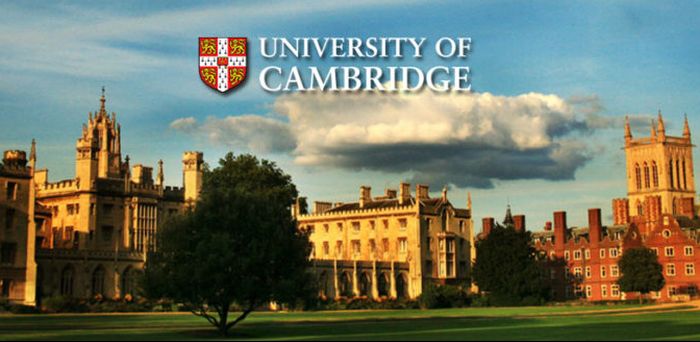University Of Cambridge Acceptance Rate 2023

University Of Cambridge Acceptance Rate 2023
Why are we discussing the acceptance rate at the University of Cambridge? So, applying for admission with little or no knowledge of your desired university has long been one of the most common mistakes that most students today make.
As a result of such errors, such students become confused along the way and, as a result, lose admission.
Understanding university tuition and acceptance rates is critical. If you want to study in Cambridge, for example, you should first learn about the University of Cambridge’s acceptance rate.
For many years, Cambridge University’s acceptance rate has been near the top, making it extremely difficult for students who want to study there.
This is because excellent and high-quality education levels are provided. Furthermore, because of their high employability rate, most university graduates have a better chance of finding work after graduation.
In this post, we will provide you with an overview of the University of Cambridge’s acceptance rate as well as other important information that will assist you in preparing for education at the University of Cambridge.
More About Cambridge University
Cambridge University, founded in 1209, is the world’s second-oldest English-speaking institution, trailing only the University of Oxford.
Cambridge is the mother of all universities in many ways, as it is where John Harvard received his education before establishing the school that bears his name, which served as a model for other colleges in the United States.
Unlike other modern universities that have their own schools and even satellite campuses, Cambridge is made up of 31 constituent colleges, many of which have significant autonomy.
So, while these colleges bear the Cambridge name and the status that comes with it, they are self-governing institutions with their own goals and constitutions.
Furthermore, there is no central campus. Instead, the school is spread out across Cambridge, with various buildings and centres.
Aside from teaching and history, several other factors keep Cambridge among the best in the world.
Cambridge University Press, for example, is not only the world’s oldest university press, but also the second largest. Cambridge also has eight cultural and scientific museums, including the Fitzwilliam Museum, as well as over 100 libraries. All of this is supported by a £2.192 billion endowment.
Why Should You Consider Studying at Cambridge University?
There are numerous reasons why you should study at Cambridge.
For starters, it is regarded as one of the world’s oldest and most prestigious educational institutions, offering an exceptional education.
As a result, Cambridge is a collegiate university with many faculties and departments in various academic fields, as well as several colleges.
Furthermore, Cambridge is one of the safest cities in the United Kingdom to live or study.
Furthermore, the institution offers a wide range of courses in a variety of subjects and levels to both citizens and international students, allowing students from all over the world to study at the University.
Another advantage of attending this university is academic excellence. Cambridge is consistently ranked among the top universities in the world for its outstanding academic standards. Cambridge, for example, is consistently ranked in the top three in the world for employer reputation, according to the QS World University Rankings.
Finally, Cambridge University has a tutoring and teaching system that allows qualified academics who are world-class leaders in their fields of specialisation to tutor or teach you as a student.
University Of Cambridge Acceptance Rate 2023
A little more than 17,000 people applied to study at a Cambridge college in the most recent application year. There were only 3,497 applications accepted. That’s a paltry 21% acceptance rate, implying that only one out of every five applicants will be accepted.
The University of Cambridge has approximately 21,650 students enrolled this year. That is a large number of people, but as you might expect from a very old and highly regarded university, admission offers are extremely selective.
Candidates can, however, improve their chances by narrowing their interests. While colleges such as Cambridge promote a well-rounded education, academics value specialisation.
Scholars define specialisation as strong academicians knowing the most important aspects of their profession as well as the lesser-known and foundational components.
University Of Cambridge Acceptance Rate for International Students 2023
Although the majority of students at the University of Cambridge are from the United Kingdom, it is a globally recognised institution that accepts students from all over the world.
However, due to its distinct structure, the acceptance rate for international students varies depending on a number of factors. The university applies different standards to candidates from other countries, taking into account the individual applicant’s position and educational experience, but final decisions are deferred to the Colleges.
Colleges frequently evaluate each international candidate individually, taking into account the applicant’s experience, the programme requirements, and the college’s goals.
University Of Cambridge Medical School Acceptance Rate 2023
The University of Cambridge has one of the highest admission rates in the world for medical school. Students at Cambridge are educated by famous professors who use new teaching strategies.
As is well known, admission to the University of Cambridge to study medicine is exceedingly difficult, with only a 21% probability of success. Of course, this is on purpose, as the University only wants to teach the best. Getting an offer to entail going through a rigorous interview process, and statistics show that roughly four out of every five applicants are rejected at this stage.
There were a total of 6,159 international students who applied to study at Cambridge in 2020. A total of 1008 candidates were offered admission to a Cambridge College, resulting in a 21.4 percent acceptance rate.
743 accepted the offers and enrolled at Cambridge, accounting for 18.6 percent of Cambridge students from other countries.
19.1 percent of those who applied were from China, while 7.1 percent were from Hong Kong. With only 3.7 percent of the 107 applicants accepted, Pakistan has the lowest success rate of any major candidate country. Hungary is the most successful country, with acceptance offers being extended to 24.8 percent of the 105 applicants.
In 2020, 401 prospective US students applied to study at Cambridge, accounting for 5.7 percent of all international applications.Out of that group, 60 individuals were given study offers, resulting in a 15% acceptance rate for US students.
University Of Cambridge Graduate Acceptance Rate 2023
Despite the low acceptance rate for Cambridge University Graduate Students, the programmes are rigors and academically demanding.
The University has strict academic admissions requirements.
MPhil in Finance has a 9% success rate, while MPhil in Developmental Biology has a 9% success rate.
MPhil in Engineering has 10%, and MPhil in Basic and Translational Neuroscience has 10%.
The University of Cambridge offers a specific graduate programme in addition to the standard Master’s and Ph.D. programmes.
Approximately half of those who receive job offers from the University of Cambridge accept them.
Aside from knowing the graduate admission rate at Cambridge University, there are several other factors to consider.
Cambridge University Tuition 2023
As previously stated, the University of Cambridge possesses some of the most incredible resources available to any university on the planet. As a result, going to Cambridge isn’t cheap.
In 2021, tuition for home students will be £9,250 per year. Students from the United Kingdom are referred to as “home students.”
It should be noted that this figure is not fixed. Since the UK government sets tuition prices for national schools like Cambridge each year, a variety of factors could have an impact on tuition.
Furthermore, as a result of the United Kingdom’s recent exit from the European Union, the government has yet to decide on tuition rates for European citizens.
Tuition for international students varies according to degree. These can range from £22,227 per year for an international student studying Archeology to £58,038 per year for an international student studying Veterinary Medicine.
Furthermore, international students (or domestic students pursuing a second degree) are required to pay an annual fee to the Cambridge College where they are studying. The annual tuition at Trinity College ranges from £9300 to £10,470.
That’s a lot of cash. Domestic and international students, however, are both eligible to apply for financial assistance and scholarships.
This assistance could range from work-study to full scholarships. Of course, these benefits vary depending on factors such as citizenship, course of study, and college.
University of Cambridge Requirements 2023
Every college evaluates candidates to ensure that everyone can thrive in their programmes, but the University of Cambridge goes above and beyond.
Cambridge collaborates with a wide range of universities and programmes to place qualified students in appropriate programmes. Unsurprisingly, the requirements vary depending on the applicant’s country of origin.
Cambridge expects UK students in Years 12 and 13 to take three to four AS and/or A-Level classes, particularly in their major areas. Although the overall grade point average should be AAA or AA*A, most colleges allow for variation as needed.
Students demonstrate their breadth of knowledge by taking three or four A-level courses, though they can concentrate on their main subject by taking three or four A-level courses
Although Cambridge accepts students from all over the world, individual decisions are usually made. There are no mandatory requirements for all non-UK candidates.
Cambridge recommends that applicants from the United States take five or more AP tests throughout high school and perform well on the ACT and SAT standardised tests.
To be considered for admission, students should have a combined SAT score of 1460-1500 and an ACT score of 32-36.
University Of Cambridge Notable Alumni 2023

As one of the world’s premier universities, it’s no wonder that Cambridge has produced leaders in their fields, such as comedian and actor Sasha Baron Cohen, illustrator Quentin Blake, and physicist Neils Bohr.
In reality, Cambridge has educated 121 Nobel laureates, 11 Fields Medal winners, 7 Turing Award winners, and 14 British prime ministers.
Some of these Nobel laureates include DNA structural researchers Francis Crick and Maurice Wilkins, philosopher and public intellectual Bertrand Russell, and astrophysicist Subrahmanyan Chandrasekhar. Prime Ministers Robert Walpole, William Lamb, and Stanley Baldwin were all educated at Cambridge.
Some of the most well-known individuals in the arts and entertainment received their education at a Cambridge college. Cambridge alums include comedians John Oliver and Richard Ayoade, as well as Monty Python members John Cleese, Graham Chapman, and Eric Idle.
Hugh Laurie, Emma Thompson, Tilda Swinton, and Thandie Newton are all graduates of Cambridge colleges. J.G. Ballard, E.M Forester, Vladimir Nabokov, and Jin Yon are among the literary figures from Cambridge, as are Lord Antony Armstrong-Jones, Sir Roy Yorke Caine, and Wuon-Gean Ho.
Professional footballers such as Steve Palmer, William Leslie Poole, and Alfred Lyttelton attended the school, as did cricketers Peter May, Ted Dexter, and Ranjitsinhji Vibhaji II.
This list is only a small selection of the University of Cambridge’s brilliance. For every person named here, there are hundreds more who have used their education to make a difference in the world in a variety of ways.
Colleges Of Cambridge
As previously stated, the University of Cambridge is a collection of smaller Colleges rather than a centralized institution.
In actuality, the school is made up of 31 colleges. Although these colleges are all affiliated with the University of Cambridge and share the larger school’s reputation and structure, they each operate independently, with their own administrations, standards, and policymakers.
As a result, the numerous Colleges can differ greatly from one another.
The Cambridge Colleges are divided into two categories: “ancient” and “new.” The old colleges were all founded between 1284 when Peterhouse College was founded, and 1584, when Emmanuel College was founded. Among the other old schools are King’s Hall (1317), Michaelhouse (1324), Clare College (1326), Pembroke (1347), Gonville and Caius (1348), Trinity Hall (1350), Corpus Christi College (1352), College of St. Mary Magdeline (1428), Christ’s College (1437), King’s College (1437), Queen’s College (1441), St. Catherine’s College (1478), Jesus College (1496), (1546).
With the foundation of Downing College in 1800, Cambridge resumed adding colleges after a nearly two-and-a-half-century hiatus. Homerton College was formed in 1796 but did not relocate to Cambridge until 1894 and did not become a genuine College until 2010, making it relatively old while being in a new category.
Other new colleges include the first women’s school, Girton College (1869), Fitzwilliam College (1869), Newnham College (1871), Selwyn College (1882), Hughes Hall (1885), St. Edmunds College (1896), Murray Edwards College (1958), Churchill College (1958), Darwin College (1964), Wolfson (1965), Lucy Cavendish (1965), Clare Hall (1966), Cambridge College, Robinson College (1966), Cambridge College, Robinson College (1966), Cambridge College, Robinson College (1966), Cambridge (1977).
Helpful Tips on how to apply for Cambridge University program 2023
Begin researching funding opportunities at least a year before your course begins.
Apply early – many scholarship deadlines for admission the following year are in early December. If your course begins in January or April, you may need to apply for funding up to 18 months ahead of time.
Get funding or arrange financing before beginning your studies; without proof of finances, you will not be admitted to the University and will be unable to study here. Expect to be unable to find funding once your course begins.
Apply for a variety of funding opportunities, both internal and external to the University, as detailed on these pages.
If you apply for a departmental award or funded place, make sure you also apply for other funding schemes so you don’t miss out on other opportunities if the department doesn’t offer you one.
If you are given more than one full scholarship, you must accept one and reject the others.
You may, however, hold multiple scholarships for smaller amounts that total a full award.
Conclusion
As an international student, you may want to consider studying at the University of Cambridge, which is regarded as one of the best in the world.
Apart from being one of the best universities, it also offers top-tier academic services that no other college can match.
However, in order to be admitted, you must first meet the University’s extremely competitive acceptance rate.
The good news is that you will almost certainly be admitted if you work extremely hard. We hope you find this post on the University of Cambridge acceptance rate useful.


I have read so many posts about the blogger lovers howeverthis post is really a good piece of writing, keep it up.